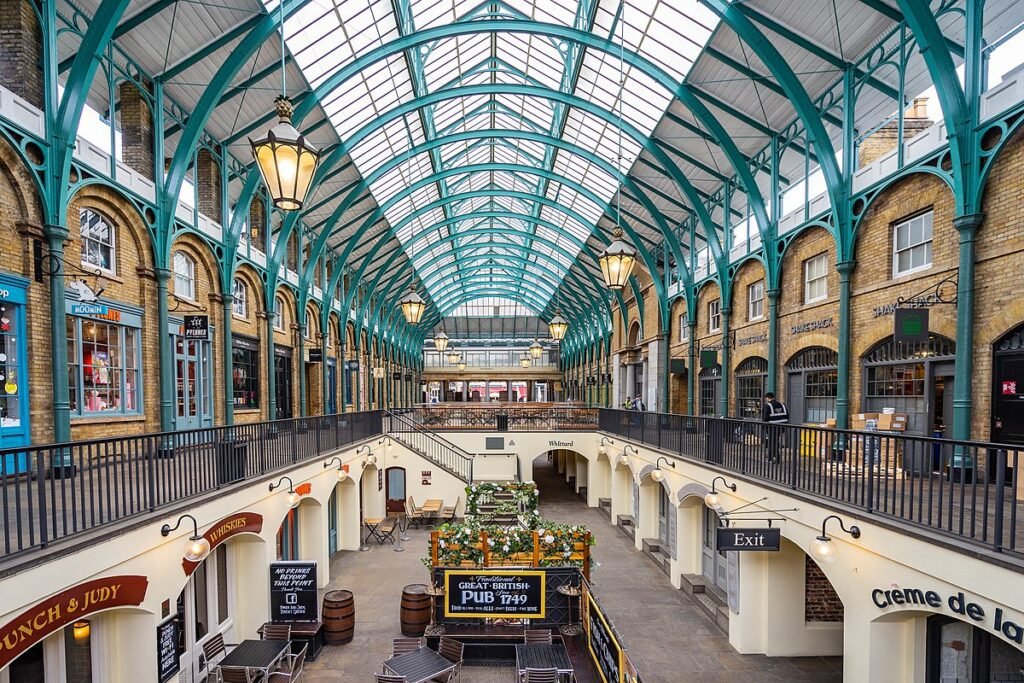A significant purchase was made by Norway’s national wealth fund, which acquired a 25% interest in Covent Garden, one of London’s most well-known areas. The £570 million deal indicates the fund’s continued belief in the long-term prospects of the real estate market in central London.
With around $1.8 trillion (£1.4 trillion) in assets, this sovereign wealth fund, managed by Norges Bank Investment Management (NBIM), is the largest of its type globally. The fund relies mainly on Norway’s vast oil reserves for investment returns, and its latest purchase diversifies its portfolio of quality properties around the globe.

The acquisition comprises a quarter of the Covent Garden estate, which is collectively valued at £2.7 billion. Covent Garden, a lively district that combines shopping, entertainment, and cultural icons, has been a favorite among locals and tourists for many years. The estate covers several high-profile sites in the district, such as the renowned market, stores, and the transport museum site.
This is within a larger pattern where Norway’s wealth fund has been trying to diversify its holdings and reinforce its positions in real estate. Even with the adversity presented by economic uncertainties, such as the impacts of Brexit and changes in consumer behavior, the Covent Garden neighborhood has proved resilient, continuing to be one of London’s prime investment destinations.
The transaction follows as Shaftesbury Capital, which owns and manages the Covent Garden estate, decides to sell off a portion of its holding. By disposing of a major share of the portfolio, Shaftesbury Capital aims to simplify its operations and concentrate its resources in other regions. The sale of this 25% holding is a turning point in the running of one of London’s best-known neighborhoods.
Covent Garden itself is also a blend of old charm and modern allure. It has undergone major redevelopment in recent years and become one of the UK’s most popular destinations for shopping and entertainment. The centuries-old market, dating back to the 17th century, is now host to various upmarket shops, theatres, restaurants, and boutiques. Its role as a center of culture, featuring such venues as the Royal Opera House, remains to entice international travelers as well as London residents themselves.
Norway’s sovereign wealth fund has a history of purchasing top-notch properties in leading cities around the world. The investment vehicle has made investments in the world’s famous locations in New York, Paris, and other cities before. This strategy of global diversification protects the wealth earned from Norway’s oil industry, which can potentially struggle in the future as the world turns towards more eco-friendly energy sources.
For Shaftesbury Capital, this sale marks a change in real estate strategy. By selling a slice of the Covent Garden estate, the business seeks to emphasize its balance-sheet strengthening and prospects in other town centres. The attraction of Covent Garden is undiminished, and its value is high enough to make it a desirable holding in London’s crowded property marketplace.
The deal is indicative of the international appetite for London’s property market. Even as the economic turmoil following Brexit and the pandemic weighed on the global economy, the city remains a magnet for foreign capital. Real estate in the heart of London, especially that with cultural or historical significance, remains perceived as secure, long-term investments for institutional investors.
Shaftesbury Capital, who have long controlled the Covent Garden estate, will continue to be a central influence in the district, but with a reduced proportion of overall ownership. The business will continue to control the running of the estate on a day-to-day basis, maintaining the unique character and reputation as the go-to destination.
For Norway’s sovereign wealth fund, this newest transaction represents continued focus on quality real estate investment in mature markets. The purchase of Covent Garden fits with the fund’s overall strategy of securing long-term stable returns, particularly in markets that continue to be strong in terms of demand. With London remaining a core commercial, cultural, and tourist center, the Covent Garden investment is likely to generate positive returns for the fund over the long term.
In a broader context, the purchase and sale of these shares illustrates how volatile international real estate markets can be. These high-profile transactions illustrate how sovereign wealth funds are increasingly interested in taking a stake in some of the most desirable real estate in the world. Covent Garden remains one of London’s crown jewels, drawing investors from around the globe even in a shifting investment environment.

